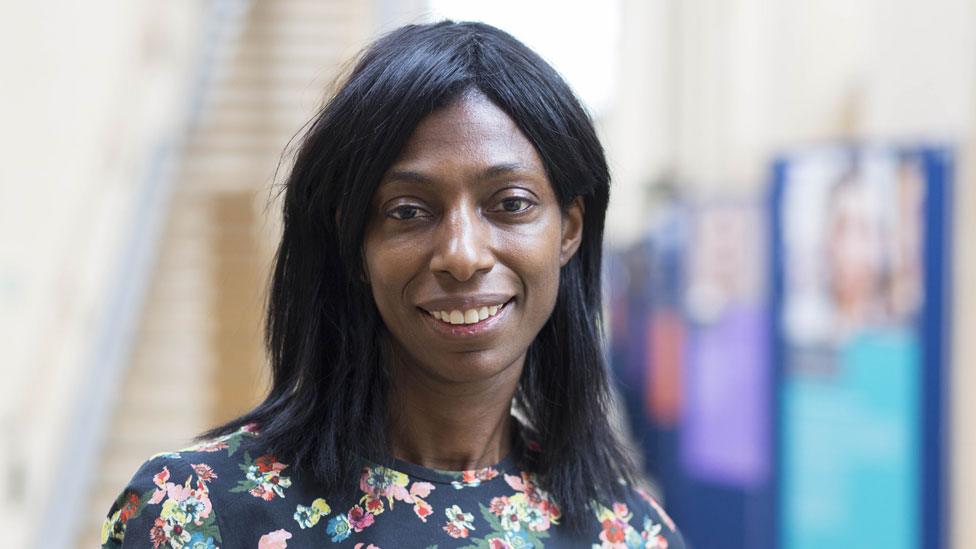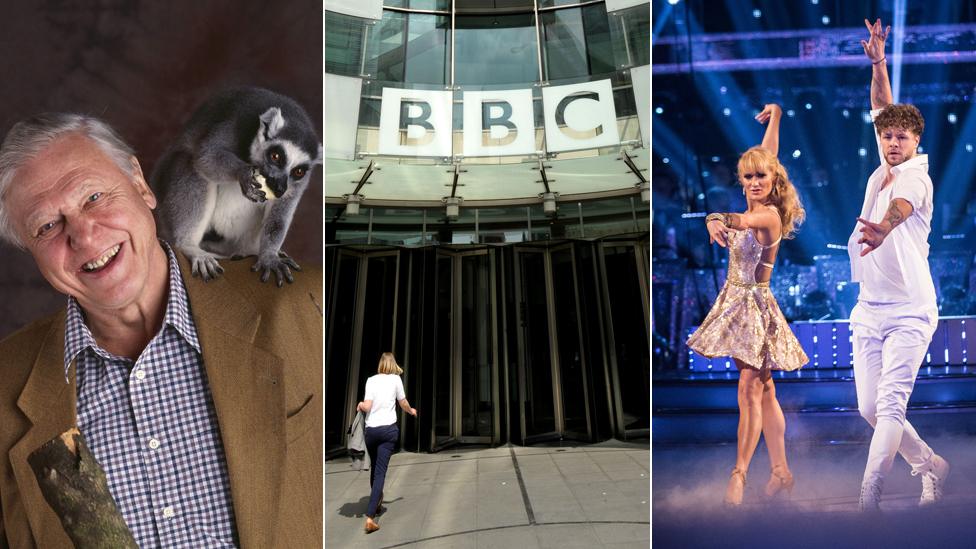BBC says 'progress' being made on diversity
- Published

Sharon White said the issue was a "challenge for the whole industry"
The BBC has defended its representation of diversity on screen after Ofcom said the broadcaster needs to "become more relevant" to its audience.
Sharon White, head of the regulator, said lots of people see the BBC as too middle-aged, middle-class and white.
She said the issue would be a priority for Ofcom when it takes over from the BBC Trust as regulator of the BBC next month.
But a BBC spokeswoman said "significant progress" had already been made.
'Vital role'
Ms White said Ofcom research showed that the public often sees representations of older people, women and ethnic minorities on the BBC as "neutral as best" and sometimes negative.
She told the Oxford Media Convention: "Too many older people, particularly women, feel they are negatively portrayed on TV, one in five viewers in Scotland and one in four in Northern Ireland feel the same way.
"This is a challenge for the whole industry, as broadcasters play a vital role in reflecting the values of our culture, and at the same time the BBC has a key responsibility to lead - it should strive to serve the needs of all corners of the UK's nations and their diversity."
The BBC said: "As Sharon White said, there are challenges facing the whole industry and while the BBC has already made significant progress in reflecting the full diversity of today's UK on and off air, we've set out plans to do even more."
'Big strides'
BBC director general Tony Hall said last week that the BBC had "one of the most diverse workforces in the UK" and that more was being done to increase representation.
He pointed to the Black and British season, and programmes including Muslims Like Us and Will Britain Ever Have a Black Prime Minister, adding: "On air, we've made big strides in reflecting the full diversity of the UK."
Ms White also said the BBC needed to "broaden its talent pool" and added of the as-yet unreleased figures: "People see the BBC as integral to society through its historic status, but for younger groups it is seen as having a lack of edge, risk-taking and programmes relevant to them.
"Many said it is too focused on middle-aged, middle-class, white audiences and could do more for the wider public."

Follow us on Facebook, external, on Twitter @BBCNewsEnts, external, or on Instagram at bbcnewsents, external. If you have a story suggestion email entertainment.news@bbc.co.uk, external.
- Published12 May 2016

- Published16 December 2014
.jpg)